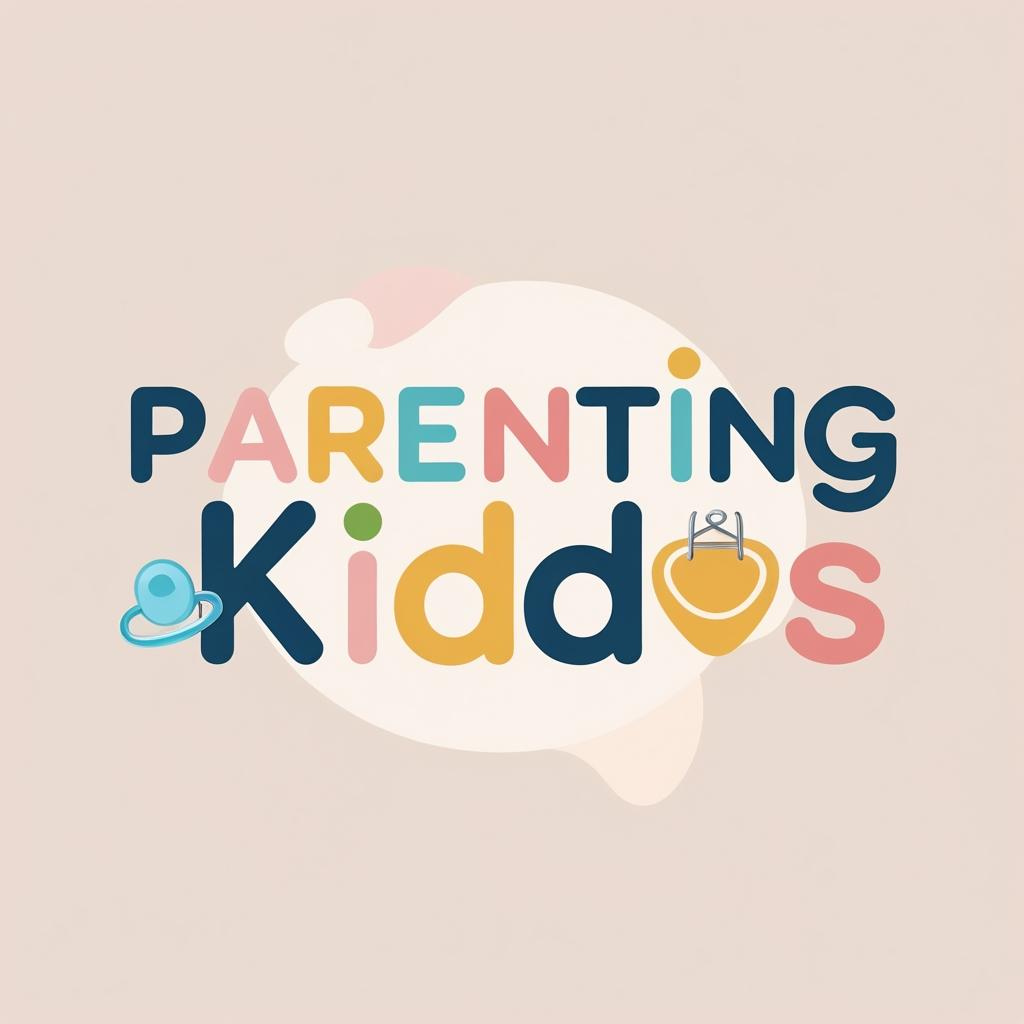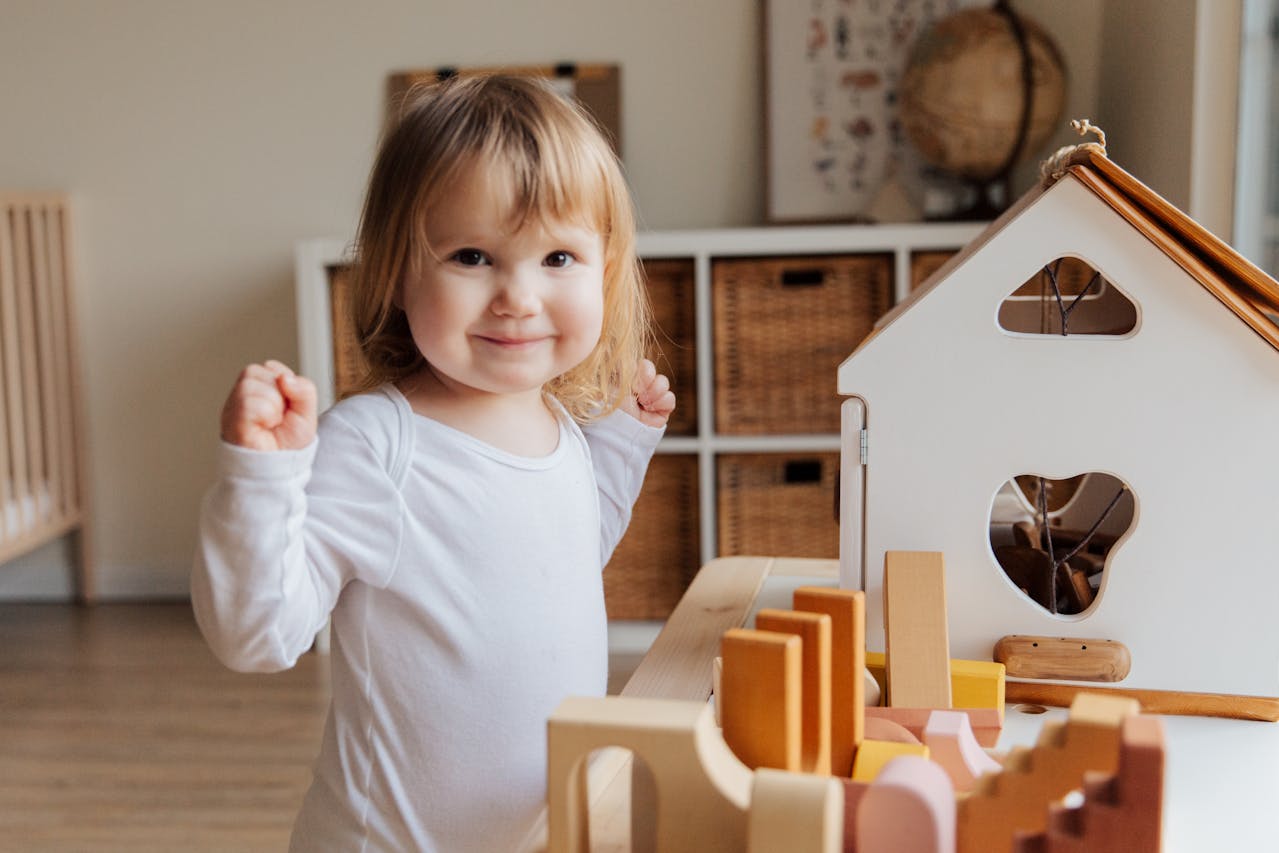If your little ones are spending their spare time mainly stuck to their screens, you know you need to unstick them soon. For that, it’s important to make them indulge in screen-free toddler activities that stimulate cognitive growth while their brain flourishes!
Want to understand which toys actually help in brain development? Check out our list of the Best Educational Toys for 2–4-Year-Olds for screen-free playtime that boosts learning.
Fun Screen-Free Toddler Activities to Try Today
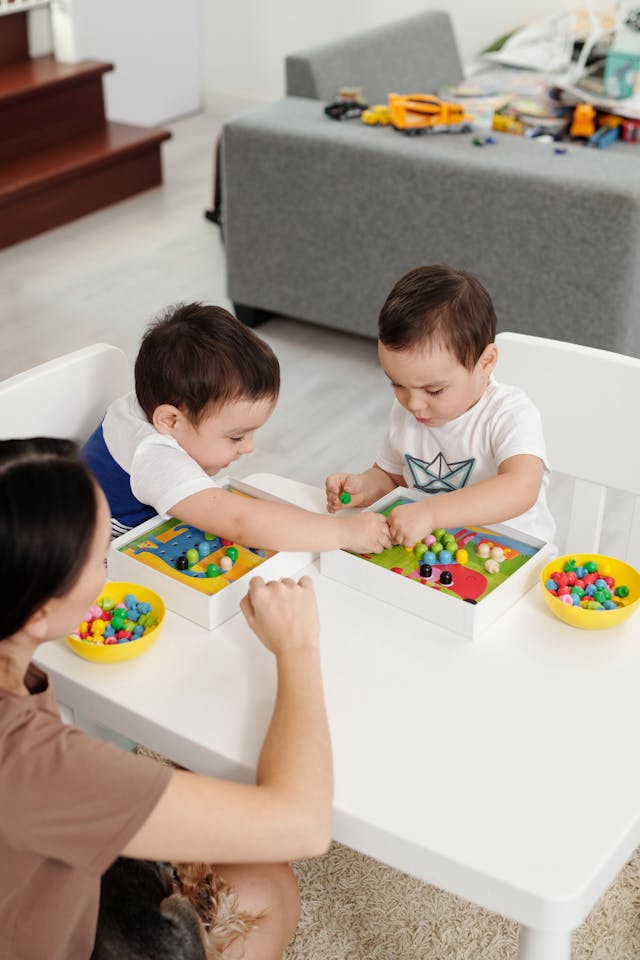
Here are some fun and interesting brain boosting toddler games and skills that you can incorporate into the daily routine for your toddler’s cognitive development. These are play-based learning for toddlers that offer an enriching experience while shaping the foundation of their cognitive growth.
Let’s delve into the answers to how to reduce screen time for toddlers.
#1. Read to your baby
Reading improves language and communication skills. Set up a reading corner and choose age-appropriate books. Start this reading session for 15 minutes and escalate the time.
Create a cozy, inviting reading nook with a toddler-friendly Montessori bookshelf like this one.
🧠 Brain Benefit: Improves language and communication skills.
#2. Playing music for your baby
Play music and let them listen to it. Join your baby and encourage them to hum together. Music leaves a positive impact on a child’s brain. These types of developmental activities support key milestones in your toddler’s growth. For a full checklist, don’t miss our guide on the 15 Key Developmental Milestones for 2-Year-Olds.
Try these fun toddler music kits to get your child clapping, shaking, and grooving to the rhythm.
🎶 Melissa & Doug Band-in-a-Box
🥁 Skip Hop Baby Musical DJ Set Toy
🧠 Brain Benefit: Helps to boost memory and concentration
#3. Engage in pretend play
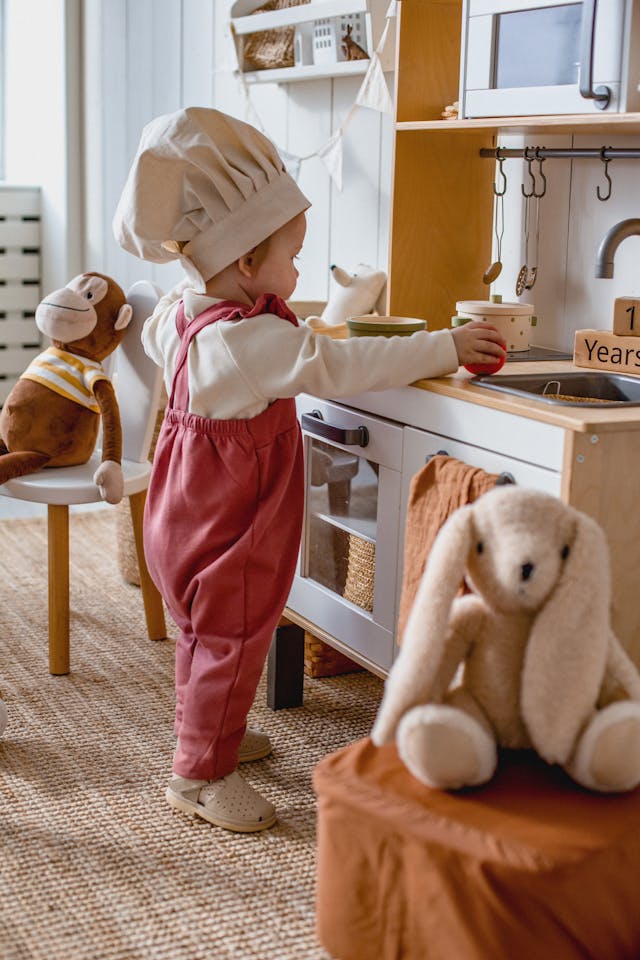
When you are thinking of some creative cognitive activities for toddlers, involve your toddler in pretend play. Give him a toy stethoscope along with other medical tools. Ask him to pretend to be a doctor, while you pretend to be the patient. Seek help from them and let them treat you.
Build their imagination with an adorable doctor pretend play set or a kid-sized kitchen.
- 🩺 Melissa & Doug Doctor Role Play Set
- 🍳 KidKraft Play Kitchen Set
- 🛍️ Mini Shopping Cart & Grocery Play Set
🧠 Brain Benefit: Improves imagination and social skills
#4. Sponge time
Introduce sponge time as one of the toddler activities to replace screen time while developing fine motor skills in your child. Choose a natural sponge and ask your baby to hold it in his hands and then dip it inside the water bin. After it saturates, instruct him to squeeze the water out of the sponge.
🧠 Brain Benefit: Improves fine motor skills
#5. Add fun with gelatin activity
Fill ice cube trays with the mixture of gelatin and water. Allow it to settle down overnight inside the refrigerator. The next day, let your baby grab the chunks and feel the squish in their little hands. Play along and have a ton of fun!
🧠 Brain Benefit: Stimulates sensory experience and sparks curiosity
#6. Finger Painting
Place a paper in front of your baby, dip his fingers into the paint and print it on the paper. Finger painting is best suitable to boost eye-hand coordination and introduce to toddler sensory activities.
Stock your art station with safe, mess-friendly materials like these toddler finger paints.
- 🎨 Washable Finger Paint Set
- ✍️ Crayola My First Palm Grip Crayons
- 🖌️ Toddler Safe Paintbrush & Paper Set
🧠 Brain Benefit: Promotes mindfulness, color recognition and creativity
#7. Introduce to Sensory Boxes
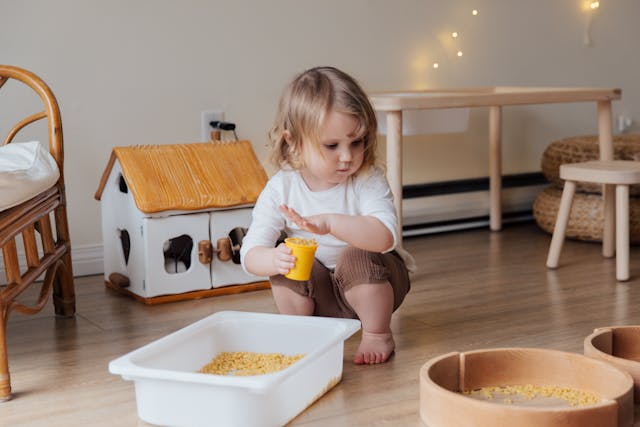
Help your baby develop all his senses by saying yes to these no screen activities for toddlers, like sensory boxes. Use daily items like balls, fruits and plastic shapes to create fun-themed touch, feel, smell and see boxes.
Sensory kits like this themed bin set make it easy to introduce texture, shape, and color exploration
🧠 Brain Benefit: Improves cognitive, language, and sensory regulation.
#8. Help with household chores
Invite your baby to help you fold or sort clothes. Try to turn it into an interesting game and make them feel to be a great helper!
🧠 Brain Benefit: Foster independence, build self-esteem and improve occupational skills
#9. Grab the ball
Fill a big transparent box with colourful plastic balls, and allow your baby to grab the coloured ball you instruct him to pick. It’s fun, colourful and educational screen-free learning for toddlers.
🧠 Brain Benefit: Develops educational skills to identify colours and follow instructions
#10. Explore Kitchen
Help your baby explore vegetables and fruits to a new level. Ask them to identify and group vegetables and fruits in separate baskets.
🧠 Brain Benefit: learn to identify fruits and vegetables, and enhance thinking ability
#11. Hot or Cold
Provide your child explore two basic yet vital scientific concepts by placing ice and coffee in front of them. Guide them to touch each one of them individually and ask them how it feels!
🧠 Brain Benefit: Develop tactile senses and understand distinct sensations
#12. Block Patterns
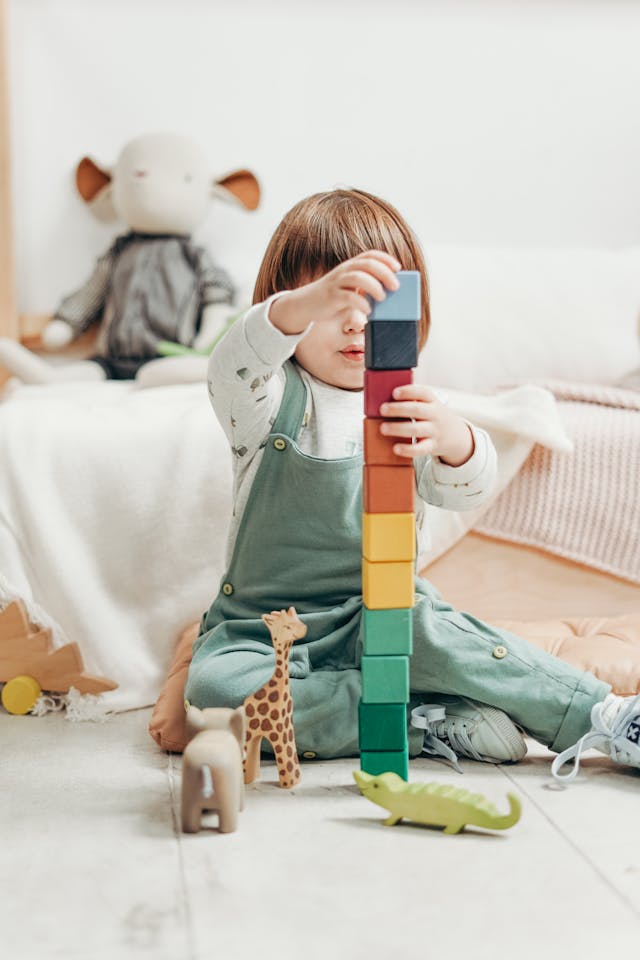
Use colorful building blocks to create age-appropriate structural patterns. Playfully ask your baby to copy the pattern and then ask him to build his own patterns. Building blocks activity helps him enhance his spatial awareness.
Building sets like these are great for boosting spatial reasoning and motor coordination.
🧠 Brain Benefit: Improves problem-solving skills, boosts creativity and focus.
#13. Matching Game
Make or get flash cards with colourful shapes or animals, birds or fruits in pairs. Start with 4 or 5 pairs. For example, ask your toddler to search and match one flash card of a tiger to another.
Spark problem-solving with this colorful matching puzzle or easy-grip flashcards for toddlers.
- 🧠 Wooden Animal Matching Game
- 🧷 Wooden Shape Puzzle
- 🐦 Flashcards for Toddlers (Animals, Fruits, Opposites)
🧠 Brain Benefit: Learn identification and matching
#14. Opposites
Collect items or draw pictures of opposites such as big and small, fat and thin, inside and outside, up and down, and so on. Talk to your baby about the concept of opposites to develop contrasting ideas.
🧠 Brain Benefit: Brain-boosting toddler games enhance vocabulary and overall academic performance
#15. Nature Walks
Take your baby out on a brisk walk in an open green park and explore flowers, leaves, birds, and the texture of nature for a better understanding.
🧠 Brain Benefit: Helps to be aware of different natural sights, textures, and sounds in the environment.
#16. Water Play
Water play is an engaging and calming play-based learning for toddlers. Fill a shallow tub with lukewarm colored water and allow your baby to put cups, waterproof toys and ladles.
Turn water play into a learning session with this water table or fine motor play kit.
- 🍴 Toddler-safe Kitchen Tools Set
- 🪣 Water Table with Accessories
- 🧽 Fine Motor Tools for Water & Sensory Play
🧠 Brain Benefit: Learn basic scientific concepts of sinking, pouring and floating
#17. Scent Jars
Scent jars are ideal for developing the olfactory sense in toddlers. Get small empty spice jars and soak cotton balls in different scents.
🧠 Brain Benefit: Build vocabulary, toddler cognitive development and recognize through smell.
#18. Words
When your toddler points his finger at an object, name the object and describe it. Suppose your baby points to a ball, you could respond by saying, “It’s a ball. We play with balls. Do you want to play with this ball?”
🧠 Brain Benefit: Helps in new words acquisition
#19. In and out
Take a bucket and instruct your toddler to put toys “in” it and then take all of them “out”. As they perform, tell the words “in” and “out” loud and clear.
🧠 Brain Benefit: Improves fine motor development and understands the concept of in and out
#20. Draw and Scribble
Give your baby colours and blank papers and allow them to scribble whatever they want.
🧠 Brain Benefit: Helps to improve tripod grasp and learn pre-writing academic skills.
Shop the Screen-Free Toddler Activities
- 📘Toddler-friendly Montessori bookshelf
- 🎶 Melissa & Doug Band-in-a-Box
- 🥁 Skip Hop Baby Musical DJ Set Toy
- 🩺 Melissa & Doug Doctor Role Play Set
- 🍳 KidKraft Play Kitchen Set
- 🛍️ Mini Shopping Cart & Grocery Play Set
- 🎨 Washable Finger Paint Set
- ✍️ Crayola My First Palm Grip Crayons
- 🖌️ Toddler Safe Paintbrush & Paper Set
- 💧 Water Beads (Non-toxic, biodegradable)
- 📦 Sensory Bins with Themed Fillers (Farm, Ocean, Texture)
- 🧱 Mega Bloks First Builder
- 🏗️ Magnetic Tiles (Toddlers safe version)
- 🧠 Wooden Animal Matching Game
- 🧷 Wooden Shape Puzzle
- 🐦 Flashcards for Toddlers (Animals, Fruits, Opposites)
- 🍴 Toddler-safe Kitchen Tools Set
- 🪣 Water Table with Accessories
- 🧽 Fine Motor Tools for Water & Sensory Play
Why Do Screen-free Activities Matter?
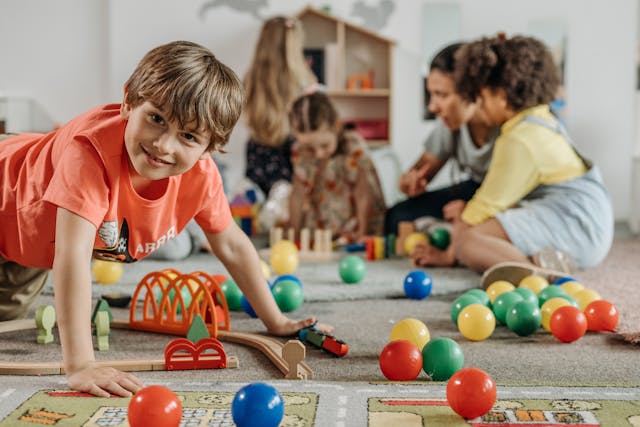
Several studies—including those from the American Academy of Pediatrics—have shown a link between excessive screen time and delays in language skills, emotional regulation, and attention span. Parents of toddlers need to be extra cautious to seek screen-free ways to entertain toddlers. By limiting screen time, you can encourage them to explore the real world and indulge in Montessori-inspired play activities that boost toddler brain development.
- Learn imaginative play
- Improve problem-solving skills
- Be creative
- Understand different age-appropriate concepts
- Encourages parent-child bonding
- Better sleep, mood, and physical health
- Brain connections are built through real experiences
- Overexposure can delay speech & emotional development
How to entertain toddlers without screens
Include creative activities for toddlers screen-free. Engaging your child and using parental control is important to manage their screen time. Here are some useful parenting tips to limit toddler screen time:
- Replace screen time with a nature walk, drawing, story time, and pretend play ideas.
- Model healthy tech-free habits yourself
- Indulge in indoor toddler activities like dancing and rhyme sessions
- Create a daily routine with predictable play slots
- Rotate toys and activities to keep things fresh
- Use screen time as a reward, not a default
- Model the behavior you want to see
- Set up screen-free zones at home
- Be ready with alternatives during transition times
- Use visual schedules
- Stay patient and keep it fun
- Start small and be consistent
- Involve your child in the plan
Conclusion
Reducing your baby’s screen time is necessary to create a healthy and balanced lifestyle. Start with small, gradual changes and replace screen with indoor and outdoor play, real-world interaction for hands-on learning. Follow our guide to plan cognitive skills for 2-year-olds and boost their brain development.
Ready to ditch the screen and build your toddler’s brain? Try one new activity a day!
FAQs
How does play-based learning affect brain development?
Play-based learning engages babies in learning skills while playing. It promotes cognitive development and socio-emotional skills useful for future academic years.
What are the side effects of toddlers’ brains with excessive screen time?
Excessive screen time reduces attention and depletes cognitive growth. Moreover, it can further boost behavioral problems in children.
As per AAP’s official recommendations on toddler screen time, we need to avoid screen exposure for children under 18 months and focus on parent-child interaction instead.
How can I boost my toddler’s brain development?
Set a daily routine for toddlers without screens and select effective toddler sensory activities and educational activities for toddlers.
